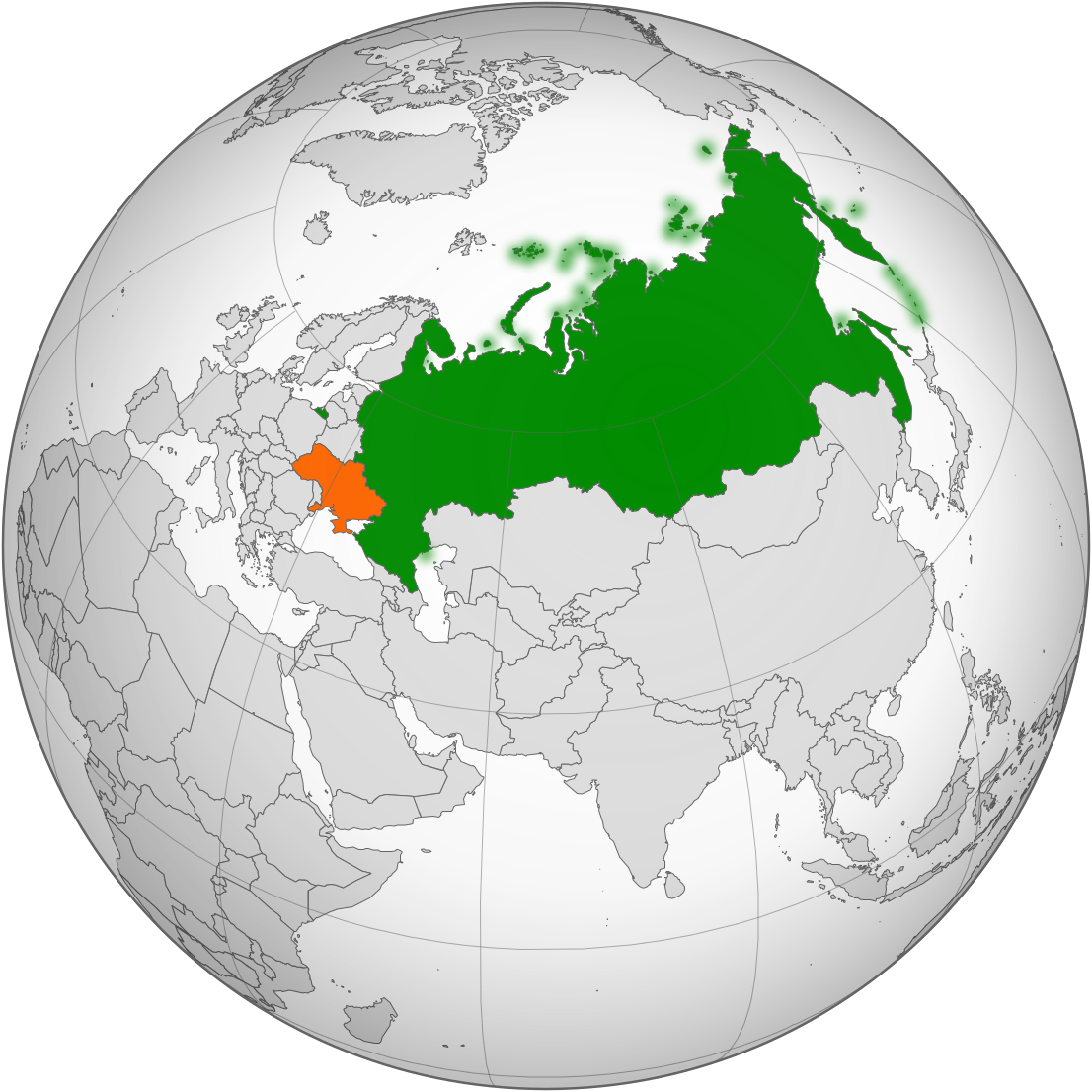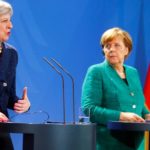
“File:Russia Ukraine Locator.svg”. Licensed under Creative Commons Attribution-Share Alike 4.0 International license. No changes have been made.
In the midst of rising tensions between Russia and Ukraine, the news world is anticipating what will happen in the coming days and weeks. One thing is clear though – there is an atmosphere of uncertainty and speculation, particularly from the Western-European media. Of course, since the annexation of Crimea in 2014, most European states and the US have been closely monitoring the heightening tensions between Russia – a state that likely wants to re-establish itself as a major power – and Ukraine, a state that was once part of the Soviet Union’s sphere of influence.
Anyone who has been actively following the escalation of tensions between Russia and Ukraine will naturally ask themselves: will Russia invade? There is no clear and conclusive answer to this question. Indeed, Sky News reports: “Jake Sullivan, White House national security adviser, said there is a distinct possibility President Putin may approve military action within a ‘reasonably swift time frame’”, adding: “We can’t pinpoint the day at this point and we can’t pinpoint the hour.” It must be said that there are inconsistencies with the narrative on this international crisis – there are those that believe Russia will invade, and others that do not. However, according to the BBC, the US has warned that a “Russian invasion could begin any day” though whether this is true only time will tell. As an International Relations student at Exeter, it is crucial to analyse the rhetoric and action coming from both sides to create a comprehensive understanding. Diplomacy, of course, is being used to prevent what could turn into a major conflict between NATO and Russia. From what has transpired thus far, both NATO and Russia seemingly demonstrate that war does not seem to be the optimal outcome of these tensions. The media has reported on several states’ response to the escalating tensions between Russia and Ukraine. For example, the US has directly ordered its citizens to leave Ukraine as soon as possible as President Biden has demonstrated that he “would not send troops to rescue Americans if Moscow invades Ukraine.” This rhetoric is purposefully used to try to de-escalate tensions – Biden clearly does not want to instigate another war that would almost inevitably be costly to both sides and have significant implications for international relationships.
Within this, is important that the Ukrainian perspective is not forgotten. On the 11th February 2022, the BBC reported that: “Ukraine has launched its own 10-day military exercises, though officials have given few details.” However, as such details are relatively unknown, it is difficult to jump to definitive conclusions – one can only speculate that Ukraine is likely doing this to prepare itself. It is no secret that Russia has a powerful army which has reportedly “massed more than 100,000 troops near the border” to Ukraine. Such actions are interpreted with great suspicion; massing troops near the border to a state which has previously invaded is not deemed a friendly action to say the least. Given the annexation of Crimea in 2014, it is reasonably difficult not to view such actions as suspicious – but the BBC reports that “Moscow has accused Western countries of stirring up hysteria.” However, given the purpose of NATO which aims to protect its members, and the history of relations between Russia and Ukraine, it is understandable why Western countries would be suspicious. Vladimir Putin, however, has reportedly denied any attempt to invade.
It has been established that Russia does not want Ukraine to become part of NATO because this would actively create a closer relationship between Ukraine and the West. To Russia, this is a threat to its sphere of influence and thus must be resisted. This has been reiterated in the British media as the Kremlin “says it wants to enforce “red lines: to make sure that its former Soviet neighbour does not join NATO.”
In an attempt to try and work towards a peaceful solution, there have been significant doubts about the competency of our British Foreign Secretary, Liz Truss. According to Reuters, there has been a rather damning report on the West’s ‘understand[ing]’ of the Ukraine-Russia conflict. To deal with political incompetence domestically is one thing, but we cannot afford to take this incompetence abroad where simple mistakes could mean the difference between successful diplomacy and an escalation of tensions and frustrations. Reports reflected Truss’s misunderstanding of the conflict, stating that “Britain would never recognise them [meaning Rostov and Voronezh] as Russian”, claims which soon had to be “corrected by her embassador”. This is frankly a damning report which clearly indicates that our Foreign Secretary does not have a fundamental understanding of the sources of this conflict.
In a time of international tension, it is important to try and repair relations rather than have accusations that the Foreign Secretary is “refusing to listen” which recall the event as a “conversation between mute and deaf people”. To make matters considerably worse, the Russian paper Moskovsky Komsomolets “said the talks were a “complete failure” and suggested that there could have been a fist fight if “Liz Truss was a man”, accusing her of only coming to Moscow to “show off, to show how macho she is.” The Independent further reports that: “The newspaper did not stop there, however, saying that Russia can discuss things with the Americans, French, Germans and “even the Ukrainians”, but claiming that “we can only argue with the British now”.” The incompetence demonstrated in Russia should raise serious questions about the competence of British officials.
Some of the latest updates on the Ukraine-Russia conflict suggests that tensions are indeed escalating. Sky News reports that the German Vice Chancellor says that we “may be on the verge of war in Europe”, but whether this will come to reflect reality has yet to be seen. It remains, however, a stark warning for Europe in the coming days and weeks.



Average Rating